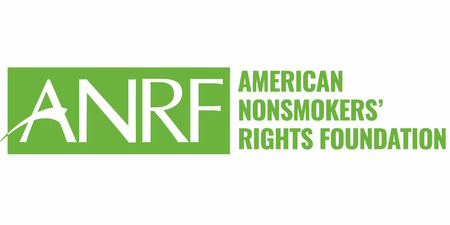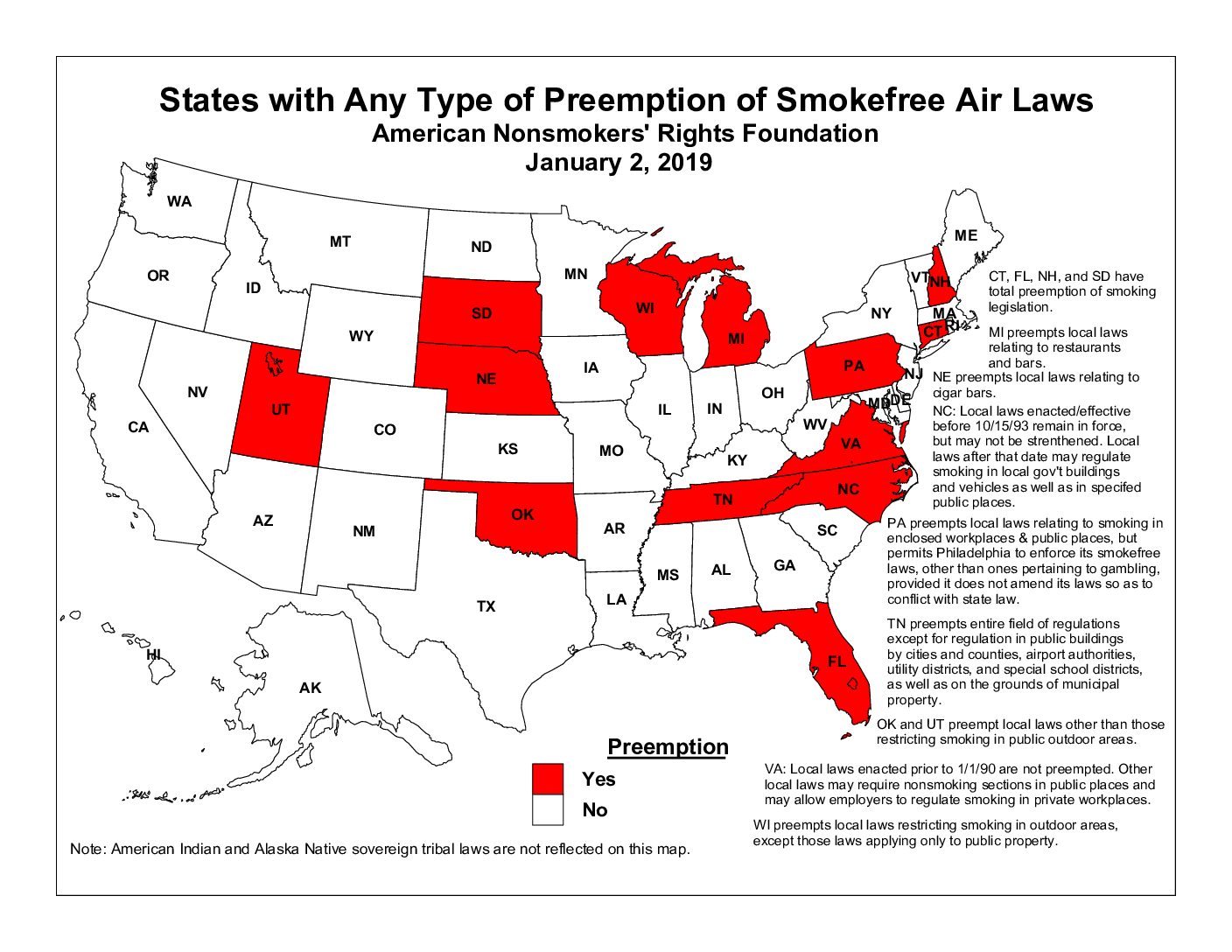“We could never win at the local level…. so the Tobacco Institute and tobacco companies’ first priority has always been to preempt the field, preferably to put it all on the federal level, but if they can’t do that, at least on the state level.”
– Victor L. Crawford, Former Tobacco Institute Lobbyist, Journal of the American Medical Association, 7/19/95
At ANR, we are no strangers to preemption. This tricky tactic was cultivated and perfected by the tobacco industry. We know the industry never quits, so we have never stopped tracking and defending against preemptive strikes.
Reference Refresh
A little rusty on the vocabulary? According to the National Policy and Legal Analysis Network, preemption occurs when a “higher” level of government eliminates or limits the authority of a “lower” level of government to regulate a certain issue. Preemption can take different forms: either explicitly spelled out in a statute, or implied, which is murkier and based on legislative intent. Implied preemption can result in a legal challenge to interpret what the law says, which is why our model language always recommends expressly stating that state laws do not preempt local action. An example of this industry interference trick is in the fact Pittsburgh, PA, Nashville, TN, and Oklahoma City are barred from enacting local smokefree laws.
Seem confusing? It’s meant to be. Preemption is a technical challenge crafted by expert attorneys as a way to combat the success of advocates organizing to build strong coalitions and change their communities. Not only is the terminology confusing, but it can be incredibly difficult to track. The tobacco industry and its allies like ALEC (American Legislative Exchange Council) tend to sneak language into bills that are likely to pass and do so during inopportune times.
Trends in Preemption
Currently, there are 13 states that preempt local smokefree laws. Eight of these states do not have a 100% smokefree law for all non-hospitality workplaces, restaurants, and bars, which means that the 20.8% of the U.S. population that lives in these 8 states continues to be exposed to secondhand smoke. View a story here about a Florida family suffering under preemption. To make progress in preempted states, either the preemption law needs to be repealed or a strong, statewide smokefree law needs to be adopted to extend protections in all workplaces, bars, restaurants, and casinos. Tobacco companies would rather have one big fight at the legislature where they have lobbyists and campaign contributions versus having to fight public health measures city by city.
Recently, during a review of Pennsylvania fiscal code, state legislators moved to preempt the City of Philadelphia from being able to regulate flavored tobacco products. The fiscal code review process happens over the summer, operates largely under the radar, and did not allow opportunity for public input. It’s no coincidence that a coalition of health advocates had been working in Philadelphia with the city council to consider the impact of restricting the sale of flavored tobacco products. Pennsylvania is no stranger to preemption, and as cities like Philadelphia and Pittsburgh lead the way in creating policy solutions to challenging problems, it’s not uncommon for the state to respond by revoking the ability of cities to implement these innovative laws.
Public health groups working on public health issues from paid sick leave and environmental protection are on watch for preemption and seeking to learn from the experience of ANR and the tobacco control movement in protecting local control. We remain steadfast that local leads the way and that the best defense against Big Tobacco is to never give up the fight for smokefree air.
Find more information at: Protect Local Control






